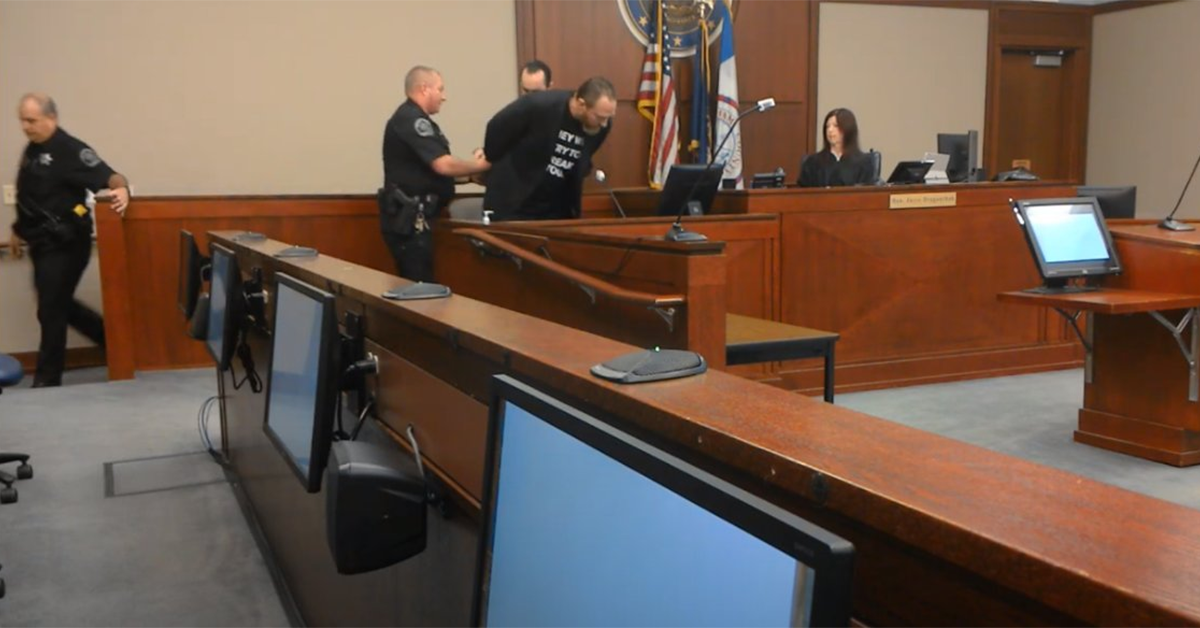Smoke, Stretch, Meditate: A Transformative Experience in Detroit

Event Dates
- Sunday, November 5th, 6:30-8:00pm EST
- Sunday, November 12th, 6:30-8:00pm EST
Join 'Train with Sensei' at the Ape's Clubhouse-a dedicated mind, body, and spirit gym-for a truly distinctive event that merges the holistic benefits of cannabis with physical and mental relaxation techniques. Located in the heart of Detroit, this event promises to be an immersive experience for all attendees.
Venue Details
Ape's Clubhouse (Mind, Body, Spirit Gym)
Inside the Art building at Russell Industrial Center
1610 Clay Street, Suite 204
Detroit, MI 48211
Admission
Tickets available for $20 each on the Eventbrite page.
About the Event
Designed as a sanctuary from the chaos of everyday life, Ape's Clubhouse is not just another space-it's an oasis. Participants have previously reported feelings of rejuvenation, relief from long-standing tension, enhanced clarity, and even alleviation of pain.
The session will kick off with an enlightening conversation about our psychological connection to the cannabis plant. Following this, participants will be guided through a series of self-stretches led by the renowned instructor, Sensei. Each attendee will also have the unique opportunity to experience an individual stretching session with Sensei.
But the experience doesn't stop there. After the stretching, attendees are encouraged to meditate and focus on the beauty and gift of life, aided by controlled breathing techniques. Ensuring a wholesome experience, your aura will be purified with Palo Santo to ward off negative energies. Furthermore, 'Breathe Again' essential oil will be used, which is known to enhance oxygen flow, alleviate mucus, reduce stress, and promote relaxation.
Remember, daily stretching is paramount for our overall health, improving circulation, and ensuring the adequate delivery of oxygen throughout the body. This lack of oxygen can lead to a plethora of issues, including inflammation, tissue damage, emotional disturbances, low immunity, and mobility issues. Let Sensei's signature stretches guide you back to a state of equilibrium.
Preparation for the Event
To make the most of this transformative evening:
- Aim to arrive at least 10 minutes early to get settled and prepare your cannabis.
- While yoga mats are provided, participants are advised to bring their own water and towel.
- The main stretching activities will commence around 6:45pm, punctuality is appreciated.
- A range of natural herbal products, including sea moss gel and daily vitamins for both adults and kids, will be available for purchase.
- Before concluding the evening, inquire about gym memberships and health testing options.
Embark on this journey of physical and spiritual revitalization with us. Please bring along positive energy, and stay assured, everyone else will reciprocate. We look forward to seeing you there. Blessings!
Tracing Marijuana's Journey in Michigan Through Science and History

The marijuana plant, renowned for its psychoactive properties, has recently garnered legal status in Michigan. As the acceptance and use of cannabis increase, it prompts a myriad of questions about its origin, biology, and the historical context associated with it.
On the evening of October 10th, Marquette residents and enthusiasts congregated at Blackrocks Brewery. They were there for Northern Michigan University's (NMU) esteemed "Science on Tap" series, a monthly initiative held every second Thursday. Sponsored by the Department of Biology and the Department of Earth, Environmental and Geographical Sciences (EEGS), these sessions present an array of educational insights. In October, Lex Koltowicz, an industrial hygienist with TriMedia Environmental & Engineering Services, stepped in with a comprehensive and intriguing discourse on the history, botany, and intricate biology of cannabis.
Koltowicz's exploration began with hemp's ancient roots. The origins of this versatile plant remain a topic of debate. Nonetheless, historical records depict its journey through Afghanistan, its maritime shipment from Portugal, and its notable utilization across regions like Southeast Asia. He delved further into a genetic examination of the cannabis plant, shedding light on the diverse variants stemming from each geographical area.
Highlighting cannabis as one of humanity's most ancient crops, Koltowicz elucidated its multifaceted anatomy. Beyond its renowned psychoactive traits and oil extraction capabilities, its stems played a pivotal role in creating cords, fabrics, paper, and several other products. This enlightening session sparked a flurry of queries from NMU students.
Witnessing a burgeoning interest in cannabis programs at NMU, more students are veering towards specialized fields like medicinal plant chemistry. For many, "Science on Tap" was not just another event but a chance to deepen their understanding and incorporate newfound knowledge into their academic pursuits. One such student, Cole Edgcombe, in his third year at NMU and enrolled in the cannabis law course, found the session particularly enlightening.
Edgcombe's revelations from the session were twofold. Firstly, he was captivated by the plant's genetics and the ease with which marijuana could be cloned. Secondly, the intricate association between the origins of cannabis and the historical slave trade was an unexpected revelation. He emphasized the cruciality of dispelling misconceptions surrounding marijuana, especially in the academic environment of Michigan. "In this evolving era with pervasive cannabis presence, we must transcend existing stigmas. It's paramount to be well-informed, especially given NMU's extensive programs. It helps in understanding what our peers are delving into," Edgcombe remarked.
The "Science on Tap" series has consistently served as an enlightening platform, with the latest session on marijuana being testament to its success. From contemporary research to intricate debates on cannabis use, anatomy, and proliferation, attendees were privy to a wealth of information. For those eager to continue their academic journey, NMU's "Science on Tap" promises more insightful sessions in the coming months. Details of forthcoming events can be gleaned from NMU's official "Science on Tap" webpage.
Legal Battles in Menominee Over New Marijuana Dispensaries

The city of Menominee finds itself caught in a web of legal challenges, as it grapples with recent lawsuits involving newly established marijuana dispensaries. These legal skirmishes shed light on the complexities of marijuana business licensing and its impact on local communities.
Background: The Licensing Controversy
In 2021, amidst a competitive bid, Menominee approved recreational marijuana permits solely for two dispensaries: Rize and the Fire Station. This decision drew criticism from several applicants, including the parent entities of dispensaries Lume, Higher Love, and the Nirvana Center. These companies subsequently sued the city, leading to a prolonged legal battle.
The crux of the issue stemmed from the claim that Menominee had not been transparent in its selection process. To the surprise of many, especially after the courts backed Menominee's actions, the city chose to settle the lawsuit with the aggrieved companies earlier this year. Mayor Stegeman expressed his perplexity over the settlement decision after a 6-3 council vote on May 24th, noting, "I cannot explain settling a lawsuit we won."
Following the settlement, Lume, Higher Love, and the Nirvana Center received licenses, with plans to establish their dispensaries in close proximity to Rize and the Fire Station.
A Second Legal Challenge
However, in a twist, Rize and the Fire Station hit back with a lawsuit of their own in August. They accused the city of contravening the Open Meetings Act during several discussions centered around the marijuana ordinance. As a result, an injunction was ordered to halt the city from progressing with the new ordinance.
The subsequent ambiguity surrounding this order led to lawyers seeking clearer instructions. On October 17th, Judge Barglind weighed in, specifying that any dispensary which was not operational by 1 p.m. on September 26th should remain closed. This directive was given on the grounds that opening any further dispensaries would necessitate the city continuing its role in the new ordinance.
However, there's a hitch. An email from a lawyer representing Rize to the city clerk on September 27th revealed that upon the city manager's request, the city building inspector had checked Lume, Higher Love, and Nirvana and found none to be operational. Despite this observation, these companies have countered by asserting that they were indeed open prior to the specified date.
Judge Barglind has since made it clear that the court will not undertake any fact verification, leaving the city to discern the truth.
Following the September injunction, Higher Love expressed its intention to join the city's side in the lawsuit. Nirvana echoed this move after the October clarification.
Seeking Clarifications
The present state of affairs has left many seeking answers. James Martone, who represents the Fire Station, confirmed that he reached out to City Manager Brett Botbyl to understand if Menominee plans to enforce the injunction against the newly licensed dispensaries. However, his queries remain unanswered.
This evolving situation underscores the intricate dynamics of the marijuana business in Menominee. As stakeholders await clarity, the broader implications of these legal battles on the future of the marijuana industry in the city hang in the balance.
Michigan Marijuana Entrepreneur Faces Multiple Felony Charges for Cyberstalking

Michigan's marijuana industry is witnessing a legal storm as Michael Doherty, a prominent cannabis business entrepreneur, is currently held in Ingham County Jail. Doherty was recently arraigned on 10 felony counts related to cyberstalking, targeting Lansing Mayor Andy Schor and several other unidentified individuals.
According to Lansing Assistant Police Chief Robert Backus, the authorities took Doherty into custody last Friday. The charges include aggravated cyberstalking and utilizing a computer for unlawful purposes. Doherty's arraignment saw 54-A District Judge Cynthia Ward setting a bail amount of $125,000. Further conditions for his release comprise wearing a GPS tether, undergoing a psychological evaluation, and strictly avoiding any contact with the victims mentioned in the complaint. While Backus refrained from disclosing all victims' identities, Mayor Schor confirmed he was one of them. Reports indicate that the victims received an overwhelming number of text messages, running into the thousands.
Doherty, owner of marijuana manufacturing firms MD Industries LLC and Rehbel Industries LLC, faced business hurdles as both companies crumbled under a massive $12.5 million debt. As a consequence, they were put under receivership in the previous year.
This isn't Doherty's first brush with the law. Last April, during a court hearing presided over by 30th Circuit Judge Draganchuk, he was handed a 93-day sentence for criminal contempt. This followed an outburst in which he accused the judge of engaging in "corrupt and unacceptable actions." The hearing centered on a motion put forth by attorney John Polderman, the court-appointed receiver. Polderman's motion accused Doherty of multiple misdemeanors, including harassing a title agent managing the transfer of MD Industries property, making veiled threats via email, and sending inappropriate messages to individuals connected to the case.
Post his release from Ingham County Jail, Doherty's controversial actions continued. He resumed emailing earlier contacts, extending his list of recipients. One notable target was Berl Schwartz, the editor and publisher of City Pulse. Disturbing messages from Doherty to Schwartz included an image of the editor with a caption reading, "These idiots will get theirs too." In a subsequent email, Doherty conveyed to Schwartz that his "entire Firm is going down over this... Can't perform Domestic Terrorism and get away with it in the Court of Law."
At the core of Doherty's grievances against City Pulse and Schwartz was the perceived lack of reporting on alleged "corruption" involving Polderman, Draganchuk, and others. It's worth noting that City Pulse had previously covered Doherty in 2020, documenting his purchase of the old John Bean factory and his subsequent establishment of a marijuana manufacturing venture. The media outlet has since published multiple stories on him, including an exclusive video capturing his contempt court hearing:
Doherty's legal journey continues, with his next court appearance slated for November 2nd before Judge Ward, as informed by Backus.
Michigan-Based Cannabis Group Under Scrutiny for Questionable Licensing Practices Out-of-State

In the complex realm of social equity programs intended to benefit marginalized communities by providing cannabis business opportunities, a concerning development has surfaced. Participants unknowingly find themselves ensnared in contracts that not only strip them of their rights but also unknowingly expose them to financial risks. While the program promises prosperity for the marginalized, some unscrupulous entities appear to exploit it for their gain. This report delves into this alarming situation, the individuals involved, and the implications for those unwittingly caught in the web.
Unveiling Key Financial Highlights of Michigan's Cannabis Scene in 2023

Michigan's cannabis industry is constantly evolving, and with a dynamic market, businesses must adapt and stay informed. With this in mind, Rehmann, a professional advisory firm, collaborated with A&K Research to release their 2023 Michigan Cannabis CFO Outlook Report. This report, offering a second-year perspective, sheds light on the financial challenges and opportunities that cannabis businesses encounter.
Chris Rosmarin, CPA and principal at Rehmann, remarked, "Our aim is to present pivotal data in an accessible and understandable format for cannabis business leaders. The 2023 edition not only offers a contemporary view of the financial landscape but also forecasts the trajectory of the industry."
But what does the Michigan marijuana landscape look like now compared to a year ago?
Key Takeaways from the 2023 Michigan Cannabis CFO Outlook Report:
-
Stability in Ownership: 66% of the surveyed companies have no plans or are not in the process of selling their business. However, 17% are currently in the process, while the same percentage are contemplating the idea.
-
Capital Intentions: 42% of the businesses are considering raising capital in the upcoming year.
-
Business Valuation Range: Companies eyeing a sale predominantly (67%) fall within the $11 million to $100 million revenue bracket, and similarly, 67% of those actively selling also fall within the $26 million to $100 million revenue spectrum.
-
Tax Allocations under Section 280E: A diverse range was observed in inventory overhead allocation, with 23% of respondents allocating over 25%.
-
State and Local Tax Exemptions: Over half (53%) of the participating entities are not utilizing any state or local tax exemptions.
-
EBITDA Multiples in M&A: A shift from 2022's 44% expecting an EBITDA multiple of 4-5x in merger and acquisition deals to just 11% in 2023. Now, 50% anticipate a multiple range of 2-4x.
-
Interest Rates on Debt: 2023 witnesses a broader spectrum of interest rates. While 24% are subjected to rates of 16% or higher, another 24% are benefiting from pre-2023 rates of under 7%. Interestingly, 18% operate with zero debt.
-
Revenue Estimations: 47% of the surveyed individuals estimate that an average cannabis store in Michigan generates revenue between $1 million to $3 million annually.
-
Wholesale Operations: 42% believe that a significant portion (51-75%) of wholesalers are not profitable at the current pricing structures.
-
Regulatory Approval Ratings: Faith in the Cannabis Regulatory Agency seems to be growing, with 47% feeling they're doing an efficient job, marking a considerable increase from 25% in the previous year.
Erik Schumacher, CPA and principal at Rehmann, emphasized the report's significance by stating, "The burgeoning Michigan cannabis sector presents both growth and challenges. Our intent with this report is to arm businesses with the necessary information to navigate their journey and make informed decisions."
This report serves as a beacon for current and aspiring cannabis entrepreneurs in Michigan, ensuring they are well-equipped to face the challenges and seize the opportunities the market presents.


 Helpful Links
Helpful Links